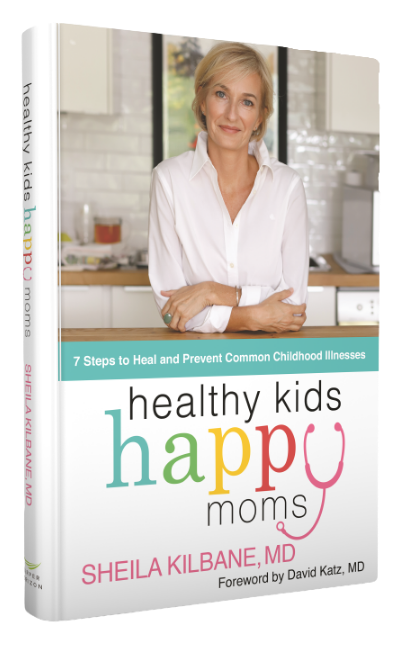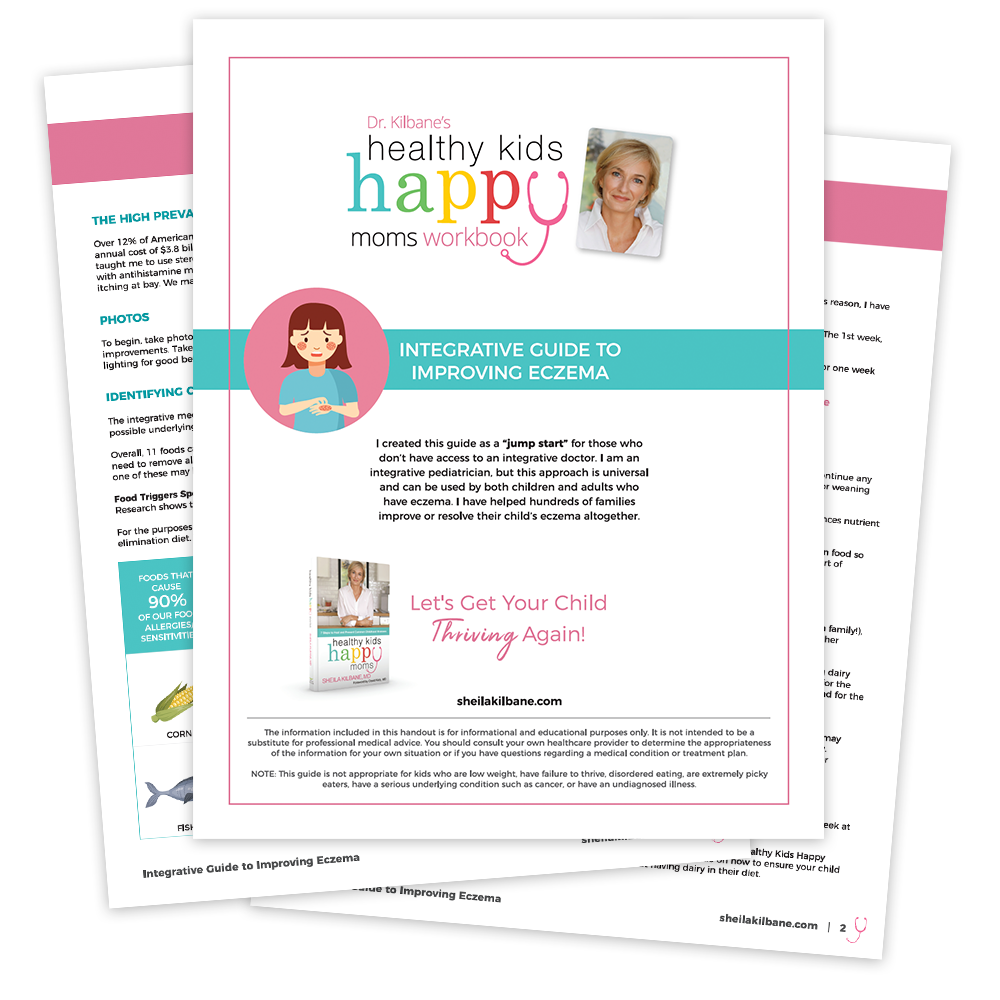This is part of our series on how to nourish your child and family with adequate nutrition using food and supplements when needed.
Omega-3 fats
Omega-3 fats impact almost every system of our body because they make up our cell walls and are critical for overall health, mood, and our immune systems.
Omega-3 fats are considered essential because our bodies cannot produce them on their own. They must be obtained from external sources, such as food and/or supplements.
Harvard University researchers looked at omega-3 fats and health outcomes and found that up to 96,000 deaths per year are due to omega-3 deficiency. More recent research has found that over 68% of adults and 95% of children in the U.S. do not eat adequate amounts of omega-3 fats.
Omega-3 Fats and Pregnancy
The human brain is about 60 percent fat structurally, and omega-3 fats make up 25 percent of that. Babies’ brains grow rapidly during the third trimester of pregnancy and early infancy. Mom transfers these omega-3 fats to the baby during pregnancy and while breastfeeding. Adequate intake of these fats is critical for mothers; otherwise, her levels may remain low up to six weeks following birth, possibly leading to a higher risk of postpartum depression.
Talk to your healthcare provider if you are pregnant, breastfeeding, or planning on getting pregnant and suspect you may not be eating adequate amounts of omega-3 fats.
Since our brains are 60% fat, adequate dietary fat is required for optimal brain health and function.
Without sufficient fat, our neuronal membranes (the outer covering of brain cells) degenerate. As a result, we make fewer of our neurotransmitters, such as dopamine and serotonin, both of which play key roles in regulating mood, attention, and impulse control.
In sum, omega-3 fats influence virtually every aspect of neurotransmission…the intricate process of information transfer between brain cells that underpins our every thought, emotion, and action.
Signs of omega-3 fatty acid deficiency
Signs of deficiency in children include:
- Increased thirst
- Increased thirst
- Dry hair
- Dry skin
- Keratosis pilaris (bumps on the back of the arms, cheeks, or thighs)
- Brittle nails
- Attention challenges
- Hyperactivity
Who Should Be Taking Omega-3 Fats (Fish Oil)?
ADHD
According to a 2014 meta-analysis, omega-3 blood levels are about 38% lower in children with ADHD than in children without the disorder. Another study revealed that boys with ADHD in particular, were deficient in omega-3 fats.
An Israeli study of nearly 200 schoolchildren found that those who ate a diet low in omega-3s had a 31% higher risk of being diagnosed with ADHD. On the flip side, research also shows that supplementing with omega-3s reduces hyperactivity, inattention, hostility, and disobedience.
By positively impacting brain health in a variety of ways, research concludes that there is sufficient evidence to utilize omega-3 fats as a supplement to ADHD treatment.
Brain and Eye Development
Omega-3 fats, particularly DHA, are essential components of brain cell membranes. Adequate intake of DHA is associated with optimal cognitive development in children. It supports processes such as memory, attention, and problem-solving skills. It is also a major structural component of the retina. Adequate levels of DHA are essential for maintaining optimal eye health.
Supplementing a child’s diet with fish oil can help prevent eye conditions and support overall visual development and cognitive well-being, especially during periods of rapid brain growth and development.
Asthma
Asthma is characterized by chronic inflammation of the airways, which leads to symptoms such as wheezing and difficulty breathing. Omega-3 fats, especially EPA, have anti-inflammatory properties that can help reduce inflammation associated with asthma, potentially leading to a decrease in the severity of symptoms.
A study by Johns Hopkins Medical Center found that including more omega-3 fats in the diet resulted in fewer asthma symptoms triggered by indoor air pollution. Further research suggests that incorporating a fish oil supplement may reduce the need for asthma medications, particularly inhaled corticosteroids. What’s more, maternal intake of fish oil during pregnancy and breastfeeding may reduce the child’s risk of developing asthma and allergic diseases.
Omega-3s are also beneficial for those with exercise-induced asthma. Fish oil may help improve recovery after a workout and decrease the amount of rescue medication needed with a workout (Albuterol).

Foods that Naturally Contain Omega-3 Fats

Fish oil, derived from fatty fish such as salmon, mackerel, and sardines, is rich in omega-3 fatty acids, specifically eicosapentaenoic acid (EPA) and docosahexaenoic acid (DHA).
The challenge is that in the U.S., we are not in the habit of giving kids omega-3-rich foods, and our kids don’t develop a taste for them. But now that you know how important they are, you can start shifting your family’s diet to incorporate these foods and begin a supplement to augment what they need.
Omega-3 fats in the form of fish oil are part of our HKHM Strategic Foundational Supplements. We always begin supplements in a specific order. Each step is getting the gut and body ready for each subsequent step. We treat supplements just like medications. We start them one at a time for five to seven days, before starting the next one, so if there is a reaction, good or bad, we know what caused the reaction.
Before introducing supplemental omega-3 fats (fish oil or algae) into the GI tract, we first enhance digestion using a probiotic and digestive enzyme. This decreases inflammation, enhances gut motility, and assists in the breakdown and absorption of nutrients from food.
Many kids and adults who have an omega-3 deficiency and are eating the standard American diet (SAD) also have compromised digestion. The enzymes provide a high concentration of lipase, the enzyme that breaks down fat. So, instead of creating expensive urine and stool, we can optimize the breakdown and absorption of fats from food and a fish oil supplement.
We start with a single strain, gentle, soil-based probiotic, HKHM Plantadophilus. It doesn’t have any fillers, FOS (fructooligosaccharides), or inulin) like many other probiotics do. These ingredients can cause bloating, increased gas, and abdominal discomfort if introduced to a GI tract that is not functioning optimally.
Our HKHM digestive enzymes come in three forms, powder, chewable, or capsule. Pick whichever form will work best for your child and the adults at home and take them as stated in our Foundational Supplement Guide.
References:
- Chang et al. Essential fatty acids and human brain Acta Neurol Taiwan. 2009 Dec; 18(4):231-41.
- Murphy RA, Devarshi PP, Ekimura S, et alLong-chain omega-3 fatty acid serum concentrations across life stages in the USA: an analysis of NHANES 2011–2012BMJ Open 2021;11:e043301. doi: 10.1136/bmjopen-2020-043301
- Haag M., Essential fatty acids and the brain. Canadian Journal of Psychiatry. Revue Canadienne de Psychiatrie. 2003;48(3):195-203.
- Shapiro et al. Emerging risk factors for postpartum depression: serotonin transporter genotype and omega-3 fatty acid status. Can J Psychiatry. 2012 Nov;57(11):704-12.
- Mickleborough TD, Lindley MR, Ionescu AA, Fly AD. Protective effect of fish oil supplementation on exercise-induced bronchoconstriction in asthma. Chest 2006; 129:39-49.
- Mickleborough TD et al. Fish oil supplementation reduces severity of exercise-induced bronchoconstriction in elite athletes. Am J Respir Crit Care Med 2003; 168:1181-1189.
- Lim, Stephen S, et al. “A Comparative Risk Assessment of Burden of Disease and Injury Attributable to 67 Risk Factors and Risk Factor Clusters in 21 Regions, 1990–2010: A Systematic Analysis for the Global Burden of Disease Study 2010.” The Lancet 380, no. 9859 (December 2012): 2224–60. https://doi.org/10.1016/S0140-6736(12)61766-8.
- Stevens, L J, et al. “Essential Fatty Acid Metabolism in Boys with Attention-Deficit Hyperactivity Disorder.” The American Journal of Clinical Nutrition 62, no. 4 (October 1, 1995): 761–68. https://doi.org/10.1093/ajcn/62.4.761.











